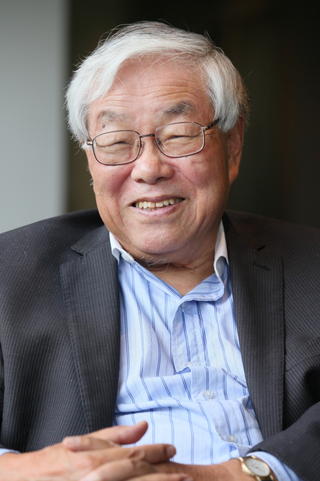Bio
Koichi Hamada is Tuntex Professor Emeritus of Economics at Yale University, where
he specializes in the Japanese economy and international economics, and
Professor Emeritus at the University of Tokyo, where he taught before coming
to Yale in 1986. Professor Hamada has an L.L.B. and an M.A. in Economics from the University
of Tokyo as well as an M.A. and Ph.D. in Economics from Yale University.
His work on policy coordination, one of the first to apply game theory
to international finance, was published as The Political Economy of International
Monetary Interdependence (MIT Press, 1985), and some of his economic articles
are collected in Strategic Approaches to the International Economy: Selected
Essays of Koichi Hamada (Edward & Elgar, 1996). He is a fellow of the
Econometric Society and served as its council member from 1980 to 1985.
Hamada was the President of the Japanese Association of Economics and Econometrics
(now the Japan Economic Association) from 1994 to 1995 and was the founding
President of the Japan Law and Economics Association in 2003 (now its honorary
fellow). He was awarded the imperial decoration, the Order of the Sacred
Treasure, Gold and Silver Star, which is given to those who have accumulated
distinguished achievements for Japan, 2006.
In Japan, he has participated in many policy committees at the Ministry of
Finance, MITI, the Economic Planning Agency and other ministries.
From January 2001 to July 2002, Professor Hamada was on leave from Yale
University to serve as the first President of the Economic and Social Research
Institute (ESRI, Keizai shakai sogo kenkyujocho), Cabinet Office of the
Japanese Government. The ESRI engages in policy-oriented research and compiling
the GDP statistics. Hamada was appointed appointed special adviser to the Prime Minister of Japan in 2013.

